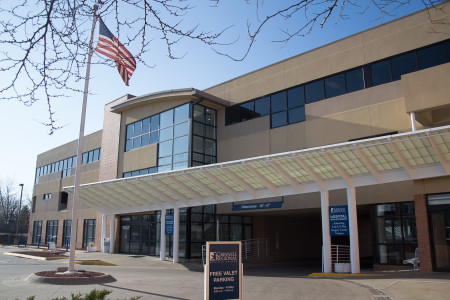
Sam Curry
currysam@grinnell.edu
Grinnell Regional Medical Center is dealing with the consequences of a new insurance policy implemented by the State of Iowa. Under the direction of Governor Terry Branstad, Iowa formally privatized Medicaid effective April 1.
Medicaid is a federal health care program that provides low-income individuals and families and persons with disabilities with access to health care.
Under the new policy, three private health insurers, known as managed care organizations, or MCOs, now cover the former benefactors of Medicaid. The three MCOs currently operating in Iowa are Amerigroup Iowa, AmeriHealth Caritas Iowa, and the UnitedHealthcare Plan of the River Valley. Health care providers, such as GRMC and the Mayflower Retirement Community, chose which private insurers they will associate with. GRMC contracts with Amerigroup and AmeriHealth Caritas, while the other health providers in town, such as the Mayflower, St. Francis Manor and Grinnell Health Center contract with all three.
Medicaid patients, on the other hand, were randomly assigned membership cards from one of the three carriers, and must make sure that they are matched up with the insurer of their health care provider, sometimes making it necessary for them to switch their insurance. This complicated process has left some Medicaid recipients confused and at risk of slipping through the cracks.
Another complicating factor has been the short period of time that consumers have had to adjust to their new health care providers. Many people received their ID cards only days or hours before the privatization began and have been left scrambling to find coverage.
“[The patients] are scared, they’re unsure … the fact that they received their cards and information late in the game, they feel unprepared … some of them on April 1 didn’t have their cards yet in the mail,” said Joann Salsman, Business Manager for Patient Accounting at Grinnell Regional Medical Center.
Despite the fact that different providers in town are offering services from different insurance companies, she is hopeful that these potential miscommunications will be managed so as to have as few negative effects on the consumer as possible.
“There could be [problems] but you can get referrals from the non-participating primary care providers to provide services to those out of network folks … [but] it’ll still be a hoop to jump through,” Salsman said.
GRMC and the MCOs have also not completely linked and the hospital is having problems getting into the health providers’ computing system.
“We signed the contract but we’re not loaded in their computer system to show that we’re in network, so we have challenges when we call in for authorization,” Salsman said.
On the bright side, GRMC has managed to avoid some of the problems that other health care providers throughout the state have had. The decision by federal administrators to delay privatization from Governor Branstad’s original date of Jan. 1 may be partially to thank for this.
“I don’t think that we’ve experienced some of the transitional problems that others have. We were more prepared in April than we were if we were going to switch in January,” Salsman said.
However, the change has also required constant efforts answering calls, complaints and questions from residents of Grinnell and the surrounding area to ensure that they are covered under the new system.
“We’re still running up against about four or five hours of calls a day of dealing with questions, problems and patients’ calls,” Salsman added.
While implementation of this policy has been difficult, the employees at GRMC are working around the clock to ensure that the transition goes as smoothly as possible for residents of Grinnell and the surrounding areas.























































